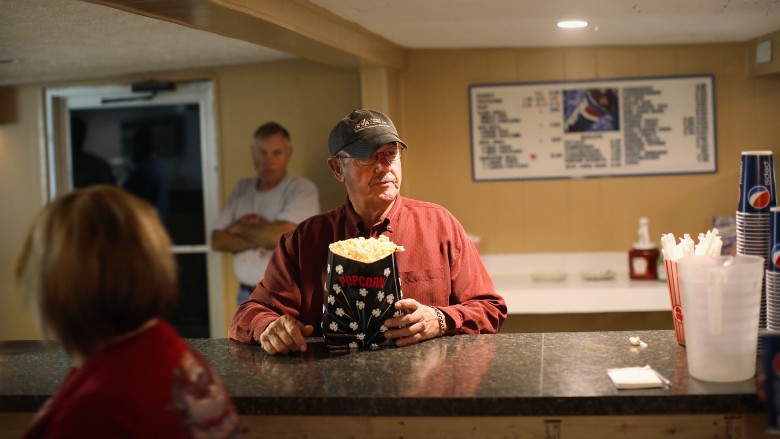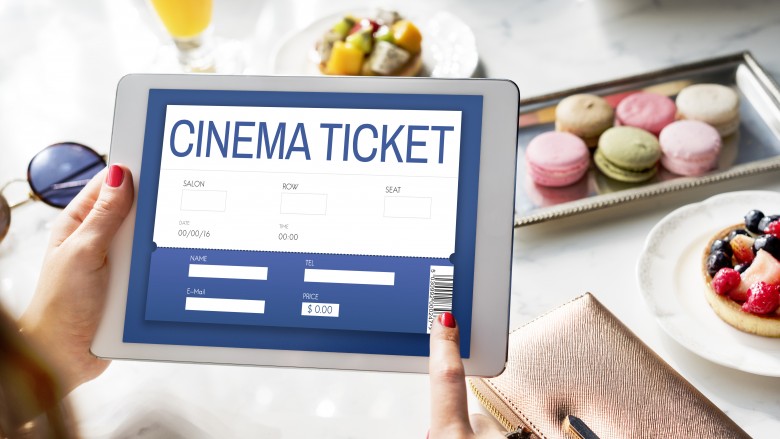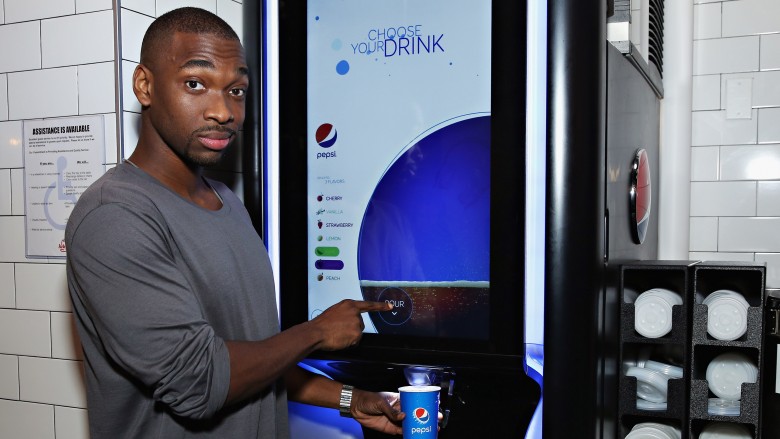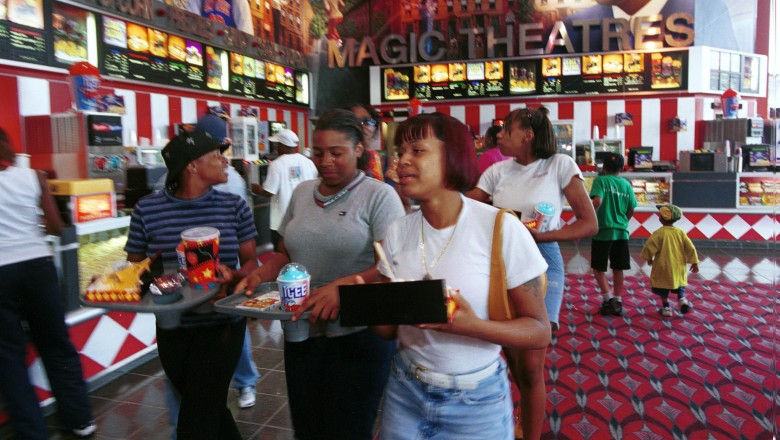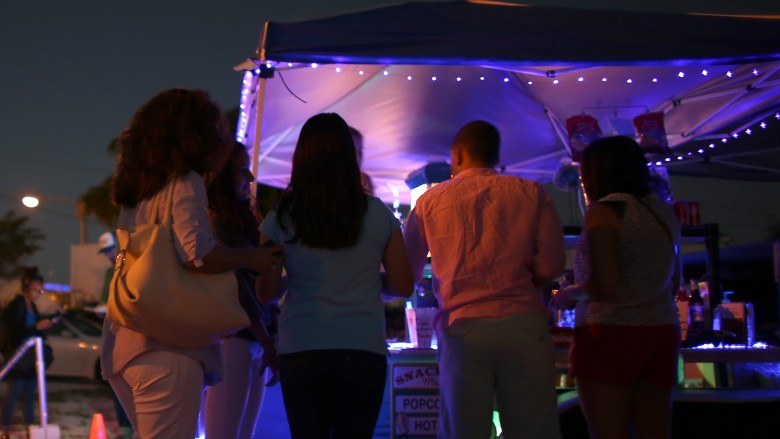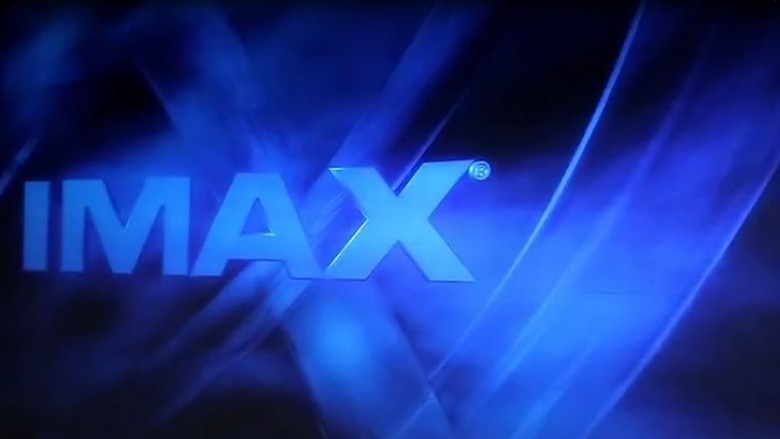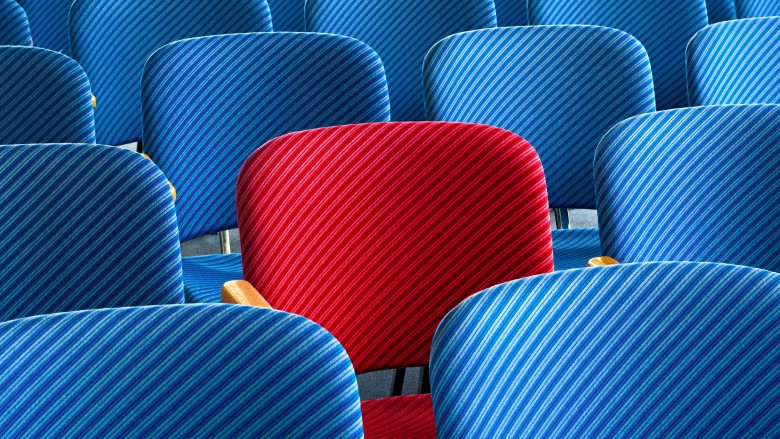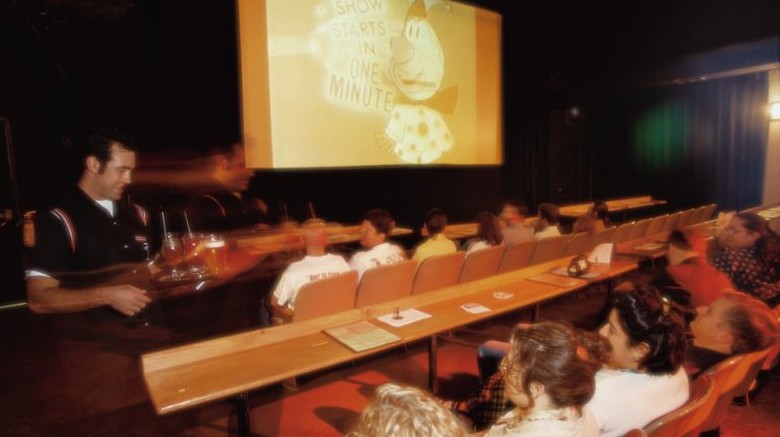Sneaky Ways Movie Theaters Are Scamming You
As much as people complain about the movie theater experience, it's still pretty much the only way to see the latest blockbuster flick soon as it's released (unless you want to take your chances with that fly-by-night bootlegger outside the barber shop). Sadly, if you're a movie buff, there are a slew of shady shenanigans theaters pull to make money off you. Such as ...
Movie houses make their money on concessions, and they're cracking down on people bringing snacks
Your friendly neighborhood movie theater is really more of a snacks venue than a motion picture house, with prices that make ballpark food look like a bargain. Most of the ticket sale money for the first few weeks of a film go to the studio, not the theater. And since most movies don't stay in theaters very long these days (the days of Jaws being held over for six months are long gone), the theaters don't have much of a chance to recoup their costs.
That's why concessions have become more important than ever, and that's why those popcorn, soda, and candy prices are so high, you might need to visit a loan shark just to munch on Milk Duds or SweeTarts. No wonder a Michigan man has sued over the high cost of snacks.
Alas, those moviegoers who think they can put one over on the theaters by bringing in their own snacks are facing some new challenges. For years now, chains like AMC and Regal Entertainment have banned people from smuggling in snacks, and now things are getting even more intense. In 2015, Regal announced they would inspect people's bags for "security" reasons, although many suspect it's mainly to keep those snacks out. And in January 2017, the New York Post did a story about the Cinepolis Theater in Manhattan having security guards checking people's bags and "snack-shaming" people. Basically, those caught either have to eat outside first, or have it thrown out. The idea of wolfing down on a box of Sour Patch Kids isn't anybody's idea of a good time, unless you want to feel like you just swallowed a lemon.
So unless you either have no shame, or the stomach of a competitive eater, you might want to leave your Twizzlers and Orville Redenbacher bag at home. Or, at least, hide them in a way nobody could possibly find them. (Actually, scratch that last suggestion, if you actually want to eat these things.)
Why a 7:00 PM movie time really means the film will start at 7:30 PM
Imagine watching a TV show that said it would start at X time, but didn't actually get going until 20 to 30 minutes later, after it made viewers endure an endless assortment of ads and trailers. That's what happens every day in movie theaters all around the country. They tell you to get to the theater, at, say 7, but don't start the actual movie till about 7:30. That's specifically so you arrive early to watch their commercials, trailers, the trailers for the trailers, and presumably the teasers for the pre-trailer trailers eventually).
Obviously movie trailers have been around forever, but watching them used to be a fun and exciting treat, thanks to scarcity. Now with YouTube and trailer "leaks" (as if those leaks weren't deliberately planned), most movie buffs have seen the trailers multiple times before going to see another movie, and they just take up time as glorified ads, reminders that the movie exists and you should pay money for it. On the other hand, with the way so many trailers give away the entire plot of the movie these days, it could save you money by not actually having to see the flick to know the ending.
Thanks to theaters insisting on showing 20 minutes-plus worth of ads and trailers, some moviegoers are getting savvy, skipping the "pre-show" and showing up just before the movie starts. Of course, this ruins your movie night in another way, because if you got there early and are sitting there with snacks in hand, you have to pick everything up and stand up and move to let latecomer after latecomer in. Oh, joy.
You might not want to know how the popcorn is made and what's in it
Popcorn has a reputation as a relatively healthful snack choice, and that's mostly true if you're popping it yourself in a hot air popper or even your microwave. But that's not the case when it comes to movie theater popcorn. It smells delicious, and it may be delectable to eat. But it is popped in oil, and that "butter" isn't really butter. It contains "yummy" ingredients like "partially hydrogenated soybean oil, beta carotene, buttery flavoring, TBHQ & polydimethylsiloxane." Also, the calorie, saturated fat, and sodium content are off the charts. And just look at the supplies used here in the making of the popcorn. Not exactly wholesome popcorn like what Grandma used to make.
Some theaters reportedly even use prepopped popcorn and put it under heat lamps. It's all enough to make you want to think twice before buying movie popcorn. Or at least before putting extra "butter" on it.
Soda fountains cost pennies per soda, and they over-charge thousands-fold
If you've ever worked in a fast-food restaurant, you may be aware at how McDonald's, Burger King, and the rest make a lot of money on those fountain drinks. The sodas cost less than 20 cents in supplies, but retail for several dollars each. The same goes at the movie theater, but for an even higher markup. Yes, even those fancy new soda machines, the ones with a hundred gazillion flavors, cost much, much less for the movie house than buying Coke or Pepsi by the bottle would. That's something to ponder when sipping on the Raspberry-Lime Coke Zero you paid $5 for, even though it cost mere pennies to cook up.
Sometimes the combo saves you no money
When you go to a fast-food restaurant, you know that, say, the Arby's roast beef combo meal with those delicious curly fries really is an extra value, because it's usually priced about a dollar or so less than buying the sandwich, fries, and soda separately. That isn't always the case at your local cineplex. Frequently the combo deal — with the popcorn, drink, and candy — is the exact same price that it would be if you bought the things separately. They apparently figure their customers aren't very good at math (not a ridiculous assumption, given our willingness to pay sky-high movie ticket prices).
Plus, chances are that, without the combo, you might skip one of the items, too, and their bottom line can't have that. So maybe you might want to put down the Raisinets this time, and save a little coin.
The combo packages with a collectible toy or cup are a ripoff, too
Some moviegoers are obsessed with getting collectibles, especially when it's connected to the latest hit movie. So getting what's known as the "Speedpack Combo" at movie theaters — a collectible cup, movie-related toy, and popcorn — is a big hit. This costs the theater about $1.50, and they can retail it for as much as $7.95.
Sure, this Happy Meal-type deal is big with kids. Bill Howard, head of SnapCo (a company that manufactures these combo packages), told the Hollywood Reporter that having this set can increase sales by as much as 15 percent. "The kid sees another kid with this toy and says, 'Hey, I want that, too,'" Howard notes. But it's also popular with adults, too, and not just because buying them shuts their kids up for once. Kristen Sheridan, Cineplex food service manager, said in the article, "We didn't think we would see 35-year-old guys with collectible cups with little toys on them, but they love them." Who knew?
The big chains reportedly run roughshod over the smaller ones, ultimately hurting the consumer
The days of theater chains shutting out the little guy are still going on. In 2015, the U.S. Department of Justice reportedly began an antitrust investigation of AMC, Regal Entertainment, and Cinemark over what is known as "film clearances." Basically, this gives the big chains exclusive rights to show certain movies, preventing smaller theaters in their areas from doing so.
A Houston theater serving the Latino community claims they went out of business because of these practices. Viva Cinemas Theaters had a business model of showing films either in Spanish or with Spanish subtitles for an "unserved market." They claim in a 2015 federal lawsuit that, when AMC "learned of Viva Cinema's plans, [they] reacted by threatening the distribution of seven Hollywood studios." The complaint with the lawsuit also says that when Viva was in business, "AMC infrequently showed some films in Spanish or with Spanish subtitles (during matinee and not evening showings)," but once the upstart theater went out of business, "AMC went back to its prior practices of exhibiting no, or virtually no, Spanish language films." Not cool. Or helpful to that community.
AMC said in 2015 that both the Civil Investigative Demand from the Antitrust Division of the United States Department of Justice and the Ohio Office of the Attorney General requested "the production of documents and answers to interrogatories concerning potentially anticompetitive conduct, including film clearances and participation in certain joint ventures." Naturally, the chain denies any wrongdoing.
Not all movie theaters are alike
Movie studios wonder why more and more people stay at home instead of going to the theater these days. One issue is that, as big-screen TVs with HD screens and Blu-Ray DVD players have become ubiquitous, the experience of watching at home is of much better quality than it used to be. Plus, you can eat your own food and not have to worry about hiring a babysitter or finding a place to park.
At any rate, it's not like spending $15 or more on a movie ticket these days guarantees a quality experience. Multiplexes, especially the older ones made before the last decade or so, can have some really small screens which simply don't have the same audio-visual experience of the bigger ones. While many multiplexes are getting upgrades when it comes to the quality of the theaters, there are some that still have this issue. And it's not like you pay less for the smaller theaters — they are still the same price, despite how you won't know until you sit down if you have a dud of a movie screen or not. Lovely.
Plus, if the soundproofing isn't done right in the multiplex, the sound can carry from theater to theater, which is especially annoying when you're watching a drama like Boyhood, and the screen next to yours is shouting Transformers: Age Of Extinction, as one movie fan recently experienced. It's bad enough to hear every word of the argument between the about-to-break-up couple in front of you. Who needs audio leakage from the next room, too?
Beware of LieMax, the bogus IMAX
When you think IMAX, you think big-screen, beautiful, quality films. And that is indeed the case for a true IMAX (Image Maximum) movie, which will be labeled as 70mm IMAX. But there are only about 60 or so of those such theaters in the United States right now, and not all of them are used as movie houses. (Some are part of museums.)
Unfortunately, the most frequent use of IMAX in the theaters these days is something called "digital IMAX." Critics say it's really more like LieMAX, as the quality just isn't the same. Old movie theaters were retrofitted with this system, and LieMAX screens are only 22% of the 70mm IMAX size, with 1/9 of their image resolution. The images are cropped more than a traditional IMAX film as well, due to the screen being more rectangular. What's more the sound quality just isn't as good.
Granted, LieMAX films are still better quality than a typical movie. But they're not worth the same extra price as a typical IMAX film. Yet the LieMAX movies still cost more than a regular one, and in some cases, even more than seeing the film in 70mm IMAX. What a ripoff.
Those reserved tickets are a scam, too
Anybody who has had to watch a sold-out movie from the front row, and gotten neck strain from looking up at the screen, may understand the appeal of reserved seating, where you can pick your place to watch the film. After all, that's the way concert and sporting events tickets are sold — and now, AMC theaters in Manhattan have started selling only reserved seating at their theaters.
But the dirty little secret is that this makes movie theaters more money, in three ways. For starters, the theater doesn't have to pay an in-person staffer to sell you your ticket. Second, that so-called "convenience charge" you have to pay for online sales means more money, because most reserved ticketing programs keep you from being able to save money by buying at the box office. Finally, a company like AMC will save the best seats for members of the AMC Stubs Premiere program, which costs $15 extra per year to join. The theater money grabs are getting as bad as the airlines.
At any rate, reserved tickets won't solve the problem of getting stuck near annoying people in the theater. If only they sold tickets and promised that the people next to you wouldn't use their cell phone, talk loudly, make noises while eating, or bring their screaming toddlers in to see Fifty Shades Darker, now that would be worth paying for.
Theaters are now making money on booze and high-priced meals
The independent-minded Alamo Draft House chain led the way on this trend, by offering decent food and drinks while watching their movies. And now behemoths like AMC are getting in on the action of turning movie night into dinner-and-drinks night, too. Markups are pretty high there, too. It remains to be seen, though, if drunken people at the movie house will become a big issue, the way it is at sporting events.
At least this trend adds some positive things for the consumers, like actual food instead of snacks. But still, be prepared to experience sticker shock when it comes time to open your wallet. That's the world we live in when it comes to going to the movies these days.

